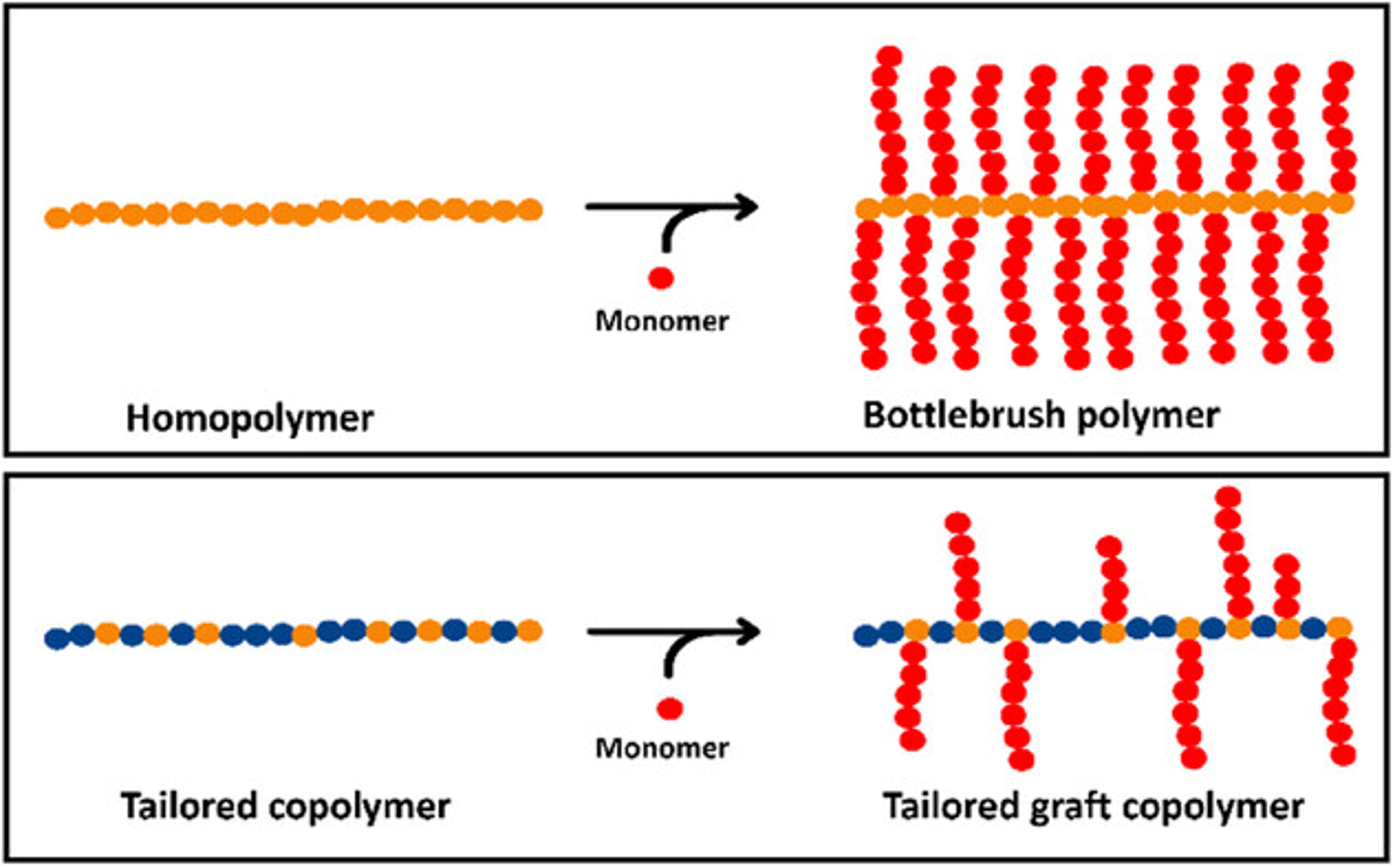News
Pushing Poly(Limonene Carbonate) Toward Commercial Applications: Bio-Based Poly(Menth-1-Ene Carbonate)-Graft-Poly(n-Butyl Acrylate) With Tailored Graft Density
05.06.2025
Marcel Höferth, Holger Schmalz, Andreas Greiner
European Journal of Lipid Science and Technology, 2025, https://doi.org/10.1002/ejlt.70037
Poly(limonene carbonate) (PLimC) is a promising material in the search for bio-based alternatives to fossil-based plastics, such as poly(styrene) and bisphenol A-based polycarbonates. PLimC is made from orange waste-derived limonene oxide (LimO) and CO2. The brittle behavior of PLimC remains a challenge for industrial applications. A possible solution could be the introduction of low Tg polymer grafts. The terpolymerization of trans-LimO, trans-menth-1-ene oxide (Men1O), and CO2 was shown to yield a terpolymer that can be used as a platform for controlled functionalization and tailored graft copolymerization. To transform the terpolymer into a macroinitiator for atom transfer radical polymerization (ATRP), the PLimC double bonds were post-modified with hydroxyl groups via thiol-ene click reaction of 2-mercaptoethanol and subsequently esterified with 2-bromoisobutyryl bromide (BiB). n-Butyl acrylate (nBA) was chosen as a bio-based monomer for grafting-from copolymerization to introduce low Tg side chains that increase the ductility of the otherwise brittle PLimC. Matrix-assisted laser desorption ionization time-of-flight mass spectrometry (MALDI-TOF MS) was used to show the narrow molecular weight distribution of the side chains. Non-wovens made from PMen1C-g-PnBA were produced via electrospinning. PMen1C-g-PnBA was added as a compatibilizer for blends of PLimC and poly(n-butyl acrylate) (PnBA) and as a toughening agent for PLimC.
Practical Applications: PMen1C-g-PnBA shows tunable mechanical properties by variation of PnBA content and graft density. Poly(limonene carbonate)’s brittle nature could be compensated by addition of PMen1C-g-PnBA, therefore opening up many possible industrial applications for PLimC to replace common fossil-based plastics. Additionally, filter applications of PMen1C-g-PnBA as sustainable electrospun non-wovens are possible.


